I come from the El Paso-Juárez border communities. For the past 15 years, El Paso has been ranked as the second safest city in the nation, while, just across the border, Ciudad Juárez ranks the second most dangerous city in the world. Daily in Juárez eight to 10 people are murdered, decapitated, kidnapped, tortured, or are simply disappeared.
Each year between 80,000 and 100,000 children are caught by the border patrol trying to cross illegally into the United States. In our parish we have a ministry with these children, children like 5-year-old Marisol, a beautiful little girl from Guatemala. She was caught trying to cross the border with a coyote, who had been paid to bring her to the United States.
When she was caught, she had a piece of paper in her hand with a phone number in her Guatemalan village. During the whole trip she had kept it in her hand, but when the officers opened it, most of the numbers were missing. This little girl will perhaps forever be separated from her family.
Immigrants like Marisol show us that immigration reform is more than simply a matter of human rights for undocumented immigrants. It is a matter of survival for the poorest. No child of God should ever have to leave her family at 5 years of age to be able to eat and survive in our world. Like the majority of people who cross the border, these are not terrorists or drug smugglers but our brothers and sisters.
The growing anti-immigrant sentiment in our country since 9/11 did not happen because people suddenly wanted to become cruel and heartless. It began because people started believing a lie about who we Latinos are, both documented and undocumented.
This is why immigration is a defining issue that is about us—all of us Latinos—and about how we will shape the future of our church and our country. There is a saying in Spanish, “La mentira nos trae la muerte.” Lies bring death.
The lie is that immigrants, and by association all of us Latinos, are disposable as human beings and not worthy of human dignity and respect. And this lie is killing us.
An immigrant recently told me, “I’ve been sacrificing myself for my family, but in this country I am worth nothing.” Latinos and immigrants encounter racism, resentment, and extreme hostilities against them, and these masquerade as patriotism and now also as national security.
By now we are familiar with the countless problems immigrants endure as a result of this lie: an increase in border deaths to more than 400 a year; raids, arrests, and deportations separating families; a backlog in family reunification and visa requests; militarization of the border; sexual exploitation of women immigrants traveling north; abuses in detention centers.
Arizona has recently made national headlines for passing harsh anti-immigrant laws, but today more than 20 states have introduced even harsher laws than Arizona. The solutions these laws propose perpetuate lies, persecute innocent people, expose all of us Latinos to racial profiling, and cause death and suffering to the poor. Those who say that they are not against immigrants yet support such oppressive laws are practicing backdoor racism at its worst.
Sure, every nation has a right to protect its borders against impending threats, but immigrants working to feed their children are not a threat to anyone. Their presence is not a threat, it is a human right; and we support their right to a better life.
Many today scapegoat the poor for self-serving political gain, for economic greed, and security fears. Their lies blind people from seeing Christ in others and keep them from hearing the gospel call to hospitality of the stranger among us. These lies are being used to justify injustice and foster racism that causes pervasive exploitation of immigrants, who are demonized as illegal, as alien, as suspicious human beings.
Since the majority of the more than 90 nationalities that daily cross our borders are from the Americas, it is our Latinidad itself that is being attacked. We know that the root causes of immigration include extreme poverty, unemployment, political and military corruption, and government instability in the countries of origin. However, we Latinos and Latinas throughout the Americas also know that the United States shares in the responsibility for these conditions that drive immigrants north across our borders.
It is not a secret that once the estimated 12 to 20 million currently undocumented immigrants become citizens, our country will be different. This process has already begun, but wait until we get to vote, buy homes, graduate from universities, and become elected officials.
Es mentira (it is a lie) that immigrants will not learn English. In our parish we have some 100 people learning English to become citizens, and similar programs exist all over.
Es mentira that all immigrants are here illegally. The truth is that the majority are here on some type of visa.
Es mentira that stronger enforcement along the U.S.-Mexico border will stop immigrants from crossing the border. It is jobs that bring immigrants to the United States.
Es mentira that immigrants are draining our health care and educational systems. The fact is that immigrants contribute about $90 billion in taxes, much more than the $5 billion they use in services.
Despite these lies I feel optimistic because this is our time, this is Latino time. We are coming of age, and we want to help fashion a new nation: one that is more just, equal, and free for all citizens, especially the poorest.
But we will need to do this the Latino way, grounded in a new vision we inherited from our indigenous ancestors, who said, “Tu eres mi otro yo,” (you are my other self). This is a profound spiritual vision of life, an economic program for justice, a cultural solution for peace, and an authentic reform for human dignity.
Tu eres mi otro yo is the Latino way. We are all linked as one. We stand together, or we fall together. We are each other, and we need to help each other. Our ancestors teach us: If I despise you, I despise myself. And if I promote the good in you, I promote the goodness in me and everyone else.
Our fathers, mothers, and abuelos have always taught what Christ teaches us: that we were made good and for good. When we see life from this decidedly Latino worldview, we discover that there are more good people in the world than bad, that the world is in truth moving toward this oneness. This is the Latino good news.
I believe that our greatest meaning in life comes from our solidarity with others, especially the struggling poorest among us. As long as they do not eat, have health care, get a good education, live in decent housing, get treated with respect and dignity, then we all remain incomplete in ourselves and as a nation.
In a time of such propaganda, lies, drastic poverty, violence, racism, and war, in this time when human life seems so dirt cheap, we must proclaim that each person matters, that they matter enormously to us because tu eres mi otro yo.
As a Latino from the border I have reason to feel optimistic about life and our future because in us we carry this deep Latino desire to live out our God-given oneness; at the end of all our human struggles, we will see that it is our oneness that will win over lies, divisions, hate, and racism. In the end the glory will go to those who know how to embrace tu eres mi otro yo. In the end victory comes in our togetherness.
I look at our Latino history in terms of the biblical story of the Exodus: Some have crossed the sea into the Promised Land of no more borders. Others are still in the water trying to make it to land. And some arrived late and are still wandering in the desert. Moses told them to be at the edge of the sea by 10 a.m., but, being Latino, they arrived at noon. They are still out there dreaming and wondering what it will be like when they get to the other side. Some of them are dying without water, acceptance, lack of health care, food, or shelter.
But today we say, “Come, venganse,” we are with you because our ministries represent solidarity in the struggle for human rights for all people.
The divisive border wall exists also in our hearts. When the border fence went up, I was part of a march protesting it. I remember walking up to the ugly steel barrier. I put my fingers through the fence, and I felt deep anger. I wanted to tear it down with my bare hands.
I kept remembering the Raramuri children in our parish missions in Mexico’s northern Sierra Tarahumara, who do not have enough to eat, whose fathers and brothers search for ways to feed their families. Holding the fence I remembered their empty stomachs. I could hear Ester ask her mother, “Are we going to eat today?”
Holding the fence in my hands, I said a prayer. I asked Jesus to forgive us. And I asked la Virgen de Guadalupe to protect her children. What the fence says is: “I don’t want you to be my other self.”
Those of us who live on the border question whether the racial make-up of our families has anything to do with the fact that Canada and the Atlantic and Pacific coasts do not have disgusting walls, yet their combined border miles far exceed our 2,000-mile-long southwest border.
This immoral wall along our border and in our nation's heart is causing moral damage to the nation's soul with long-term consequences far beyond the fears we have of terrorists. It says that we have stopped dreaming of the possibilities to help each other as human beings in the land of the free. It says that we have given in to smallness of our hearts because of the fear-filled lies that claim doom when we welcome the strangers in our midst.
This ugly $242 billion wall is a wake-up call that our national leadership has failed to help us and that it is time for us to offer a better vision for national problems. We need to stop the further construction of this wall, tear it down, and make good use of the materials. What we need instead is just, comprehensive immigration reform, which will help America become a decent nation.
This is an historic moment for us. We have never been this close to immigration reform, and we are not backing down because we are not afraid of those who oppose us. I have seen in the faces of Latinos all over the country that we are ready to show our resolve, our conviction, and our dedication to the immigrants and to reform. We want to do what it takes because we deeply believe that justice will triumph over hate, that love will conquer racism, and that common compassion will overcome the lies.
I still believe in the dream of a better, more just America for everyone. We will not surrender to the lies and the indignities directed against us. Hope runs through our veins, and the cause of reform endures in our hearts.
Today I remind those who stand in the way of our work on immigration reform that history is on the side of justice:
You did not want slaves to be free, and slavery was abolished.
You did not want women to vote, and today they even make the laws.
You did not want minorities to go to school, and today we graduate with honors.
You did not want gays in the military, and today they serve with distinction.
You did not want seniors to have Social Security, and today they get their monthly benefit.
You do not want immigrants in our country, and now they even serve as judges on the U.S. Supreme Court.
Be clear on this: God is on our side and on the side of immigration reform. It may take us a while, but we will win.
Latinos, Latinas, this is our time in history, let's not waste it. Let us join with every man and woman of good will who shares our gospel convictions for a more just and joyous world.
America, we Latinos are here to stay. Don't be afraid of us, join us. We are passionately determined in our convictions. Our parents and grandparents worked too hard, sacrificed too much. Too much blood has been spilled for us to be bystanders in the emerging new America. We are a proud people and filled with great faith and hope, and we want to share it with you.
This article originally appeared in the December 2010 issue of U.S. Catholic (Vol. 75, No. 12, pages 34–36).
Image: Flickr cc via Jonathan McIntosh


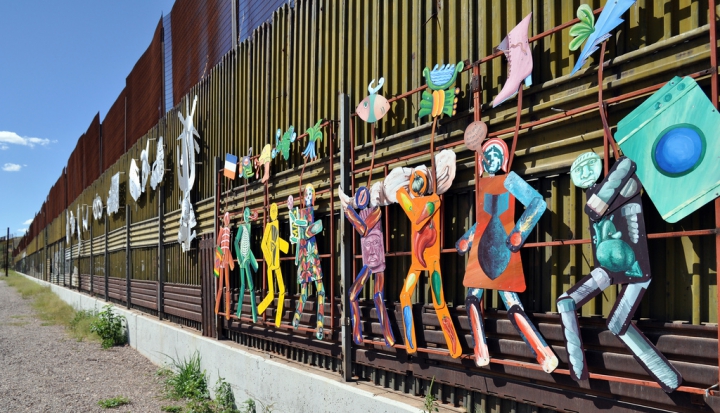


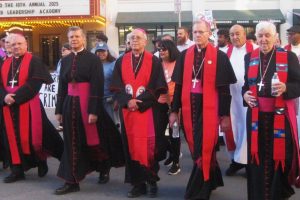
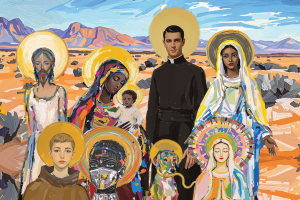
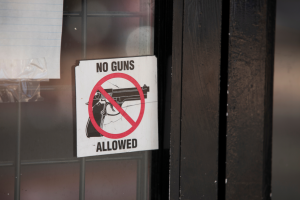




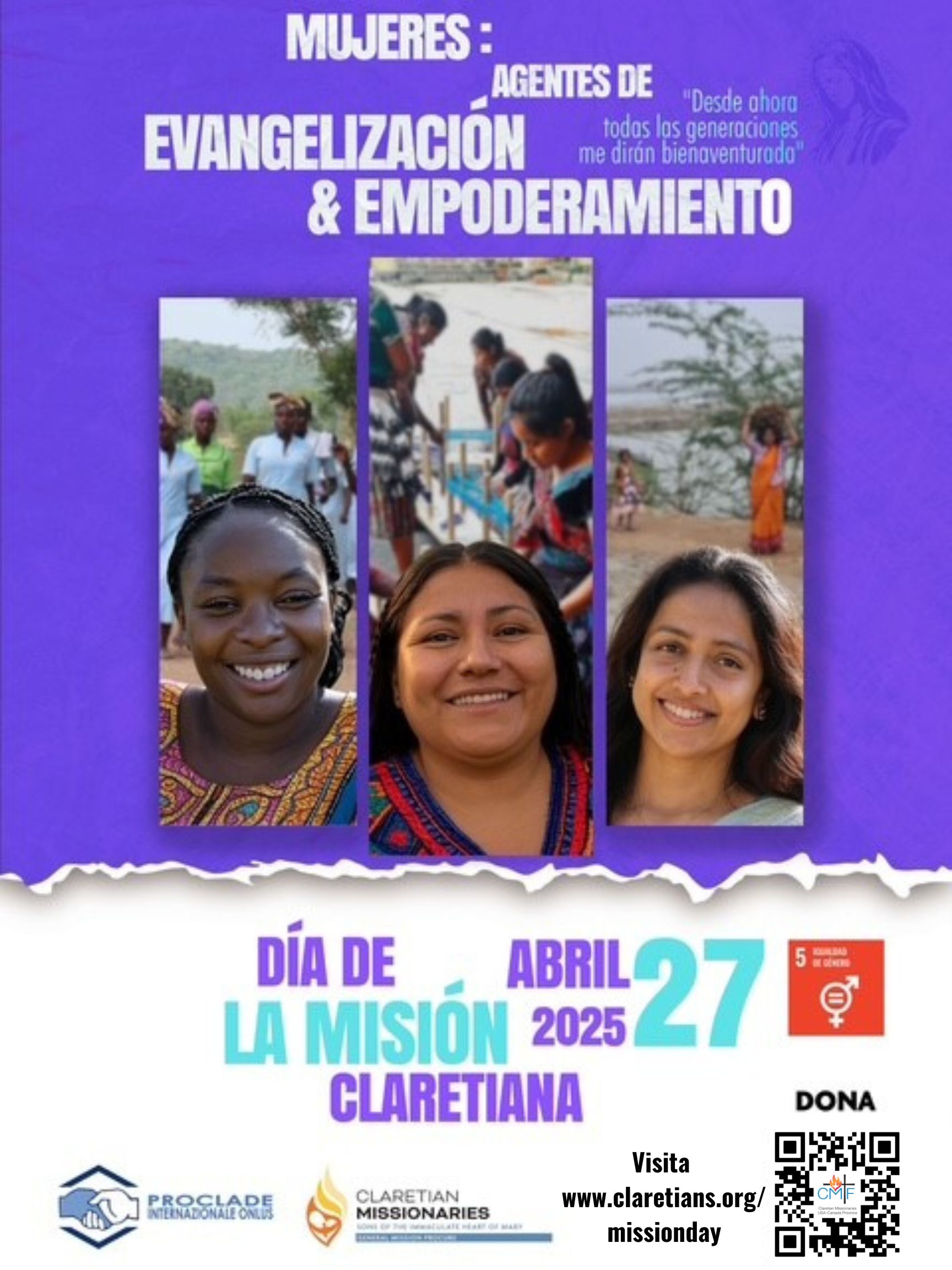
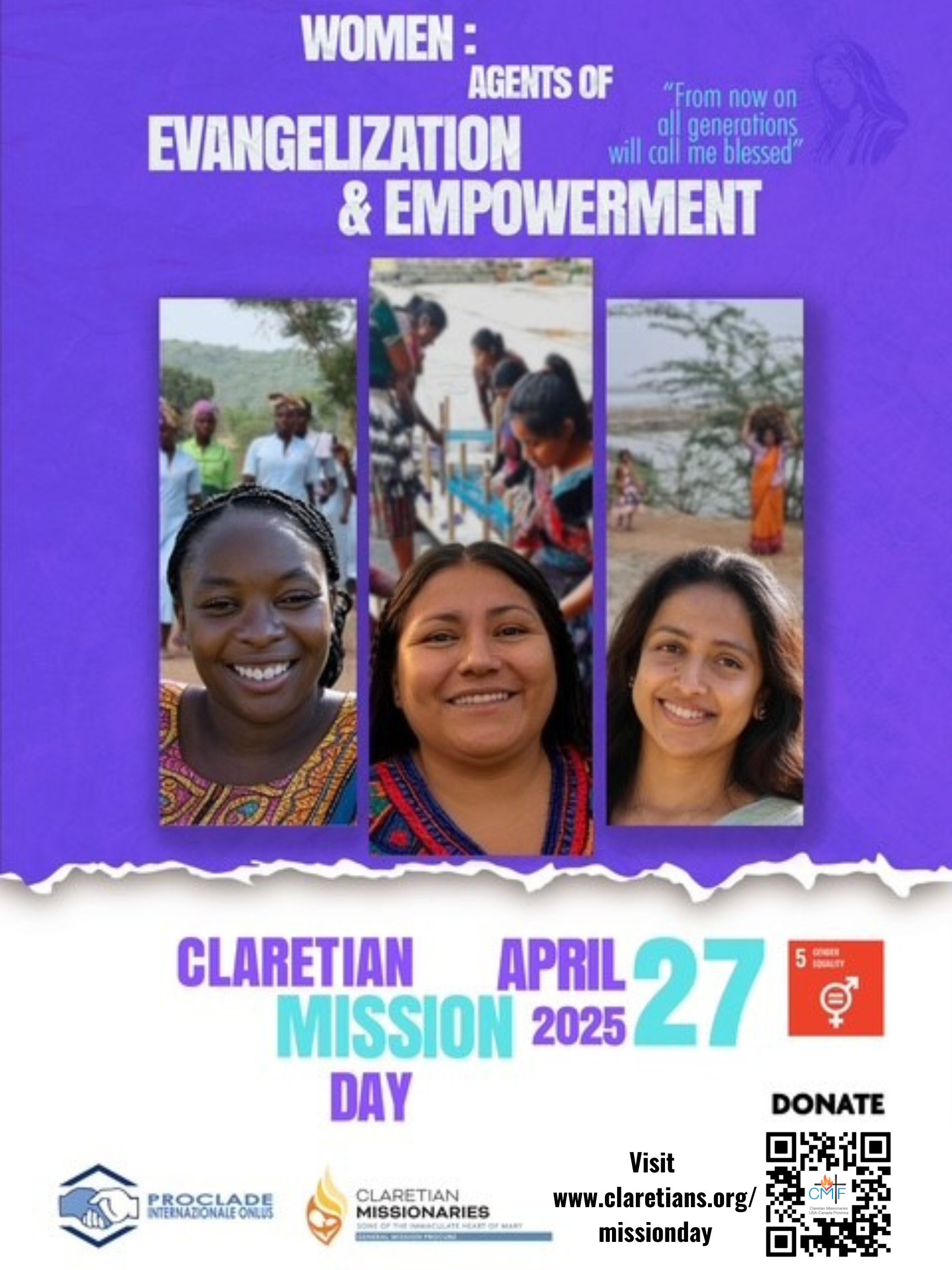
Add comment